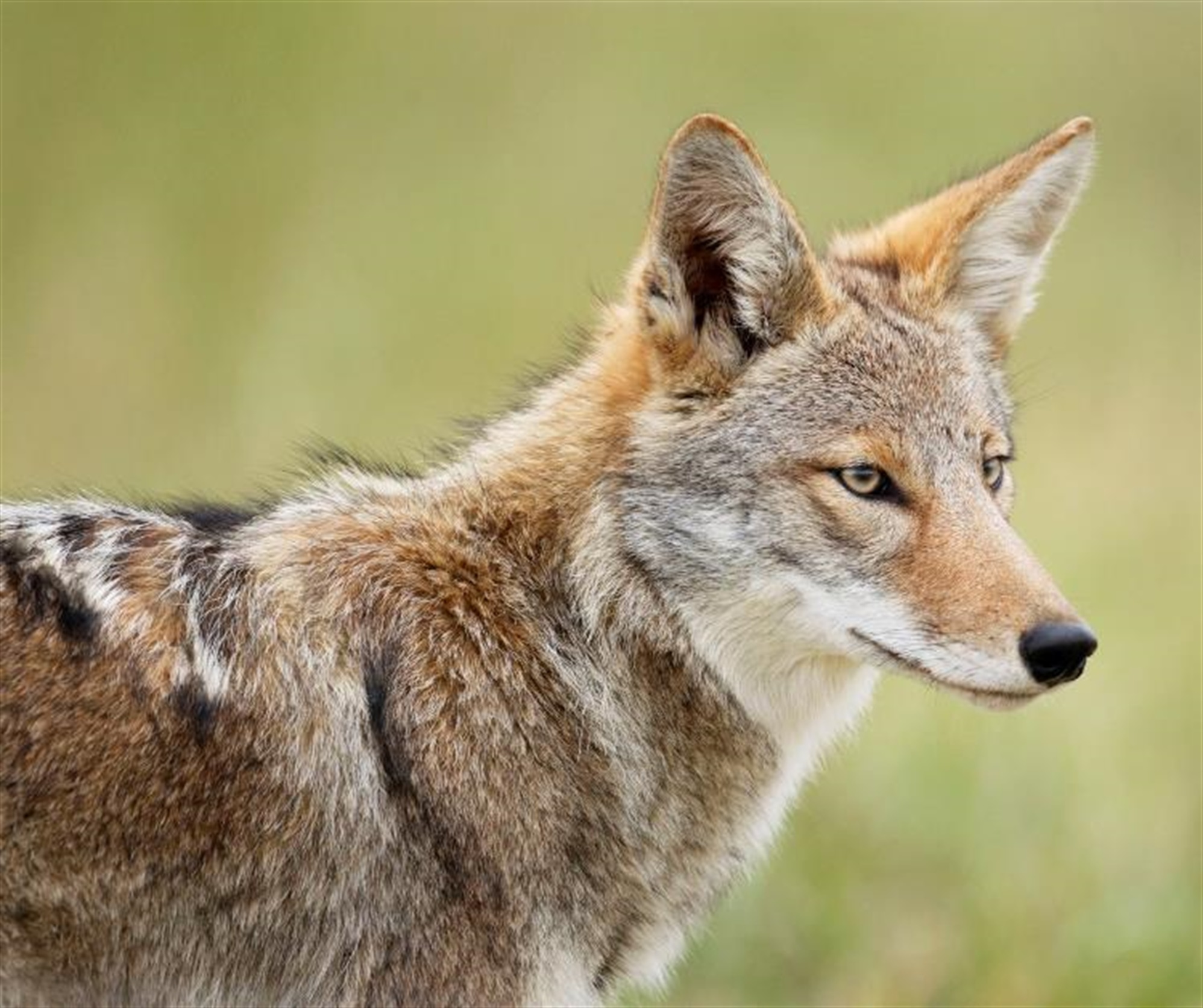
Coyotes in urban areas normally run in a family unit consisting of a female, a male and their pups. A female may have four to seven pups in each litter and can reproduce twice a year. Although they can live 13 years most coyotes in urban areas will die within the first three years of life. Coyote sightings usually increase in the fall because the pups have matured, and they are moving onto form their own pack.
The urban coyote's diet mainly consists of small rodents, rabbits, snakes, squirrels, and even fruits and vegetables. Coyotes are not predators that will normally attack humans and, in most cases, will become frightened and run away if they see a human.
Even though they don't pose a threat to people, their prey can include domestic pets. Keep your pets indoors if you have seen a coyote in your area.
Coyotes range in size from 20-40 pounds. They will have erect, pointed ears, a slender muzzle and a dropping bushy tail. Coyotes are predominately brownish grey in color with red behind the ears and on the face and the belly is light grey to cream-colored. However, color can vary among individuals from grey to black. The coyote's eyes will be a vivid yellow with large pupils, unlike a dog's eyes which are brown or blue.
Coyotes fall under the jurisdiction of the North Carolina Wildlife Commission. NC Wildlife will not typically respond to a coyote sighting because they are indigenous to this area, and it is not uncommon to see them. However, if you have questions or concerns, you may contact them at 919-707-0030.
Animal Care and Control will respond if you physically come into contact with any wild animal or if your domestic animal fights with or is wounded by any wild animal. A report will be filed but that does not mean the animal will be caught or trapped especially if it is no longer in the area. To file a report please call 311.
If you are having a nuisance wildlife problem, you can contact one of the many animal removal companies listed in the phone book.
Links of Interest:
NC Wildlife - Coexisting with Coyotes
For trapping information and trappers for hire, visit NC Wildlife - Trapping